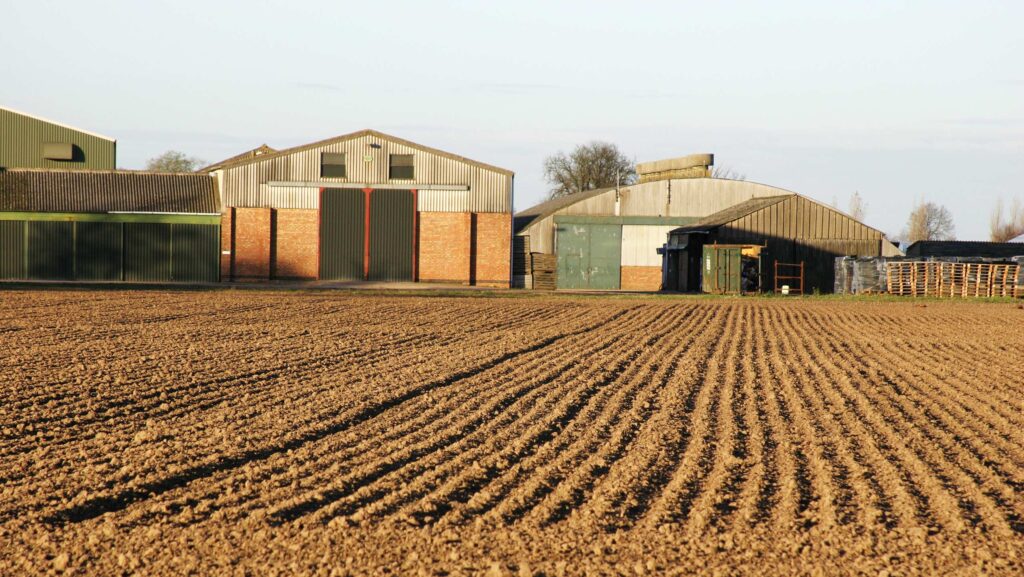New landlord-tenant code of practice – what’s changed?
 © Adobe Stock
© Adobe Stock The need for an Agricultural Landlord and Tenant Code of Practice to put the relationship between all parties on a more positive footing was a key recommendation of the 2022 Rock Review.
The review highlighted how the actions of some landlords and agents were affecting the mental health of tenant farmers, and that there was a need for everyone to act in a more socially responsible way.
The new 12-page code of practice, published early in April 2024, has been written with the involvement of stakeholders from across the tenanted sector to provide guidance on the expected standards of behaviour.
See also: Advice for tenant farmers considering diversification
It has been endorsed by the member organisations of the Farm Tenancy Reform group, which are hopeful that, while it is voluntary, all parties involved in tenancy agreements, and their advisers, will follow it.
The Tenant Farmers Association (TFA) describes it as a major step forward and says it should be a document that sits on kitchen tables, to be referred to by tenants during any discussions with their landlord, including rent reviews.
“In addition, we would like to see the code referred to in tenancy agreements, letters of instruction and in other important agreements,” says TFA chief executive George Dunn.
If both parties sign a tenancy agreement which specifies that they will abide by the code, then contractually those code terms will become binding.
The Country Land and Business Association (CLA) says the document is “pragmatic, rather than prescriptive” and suitable for use in a wide range of scenarios to deliver just and equitable arrangements between tenant and landlord.
“We encourage all members to familiarise themselves with the code and use it to guide discussions – whether in their role as landlords, professional advisers, or as someone else’s tenant.”
Code overview
The code describes the standards expected of landlords and tenants on grant of tenancy, during rent reviews, when looking at new business opportunities, during discussions on repairs and improvements and on termination and renewal.
It stresses that the word “should” has been used to show where it regards the standards set down as the minimum acceptable.
Occasionally, the phrase “may consider” has been used where actions are desirable but may not be appropriate or necessary in all circumstances.
The code is underpinned by three principles: improving clarity, communication and collaboration.
“These three themes set the tone for how the relationship [between landlord and tenant] should be,” says George.
Many tenants who responded to a recent survey by the TFA reported they were not meeting with their landlord or the landlord’s agents on a regular basis, which meant there was no clarity about future plans and little opportunity for discussions on collaboration.
A further criticism concerned a lack of timeliness, with some landlords and agents leaving it until the last minute to enter into meaningful discussions about rent reviews, or even applying to appoint an arbitrator before discussions had taken place.
“The code of practice emphasises the need for matters to be discussed in good time, so that people are not rushed into making decisions,” says George.
“Equally, in holding sensitive discussions, it will be necessary to choose the time to have these conversations, carefully avoiding busy times of the year or periods of particular emotional stress for farmers and their families.”
Rent reviews
On rent reviews, the code says the party initiating the review should suggest a broad timeframe for discussions and that both parties should respond to each other in a timely fashion and generally work to avoid unnecessary delays.
Agreed outcomes should be recorded in writing, with a copy for both parties.
The written record should also note anything else that is agreed as part of the rent review.
It may be helpful if the record is signed and dated by both parties, or their agents.
If a dispute arises, negotiations should continue to be conducted in a constructive and timely manner, with both parties seeking to reduce and refine the issues that have to be referred to dispute resolution.
“There are pretty good legal precedents for what is reasonable and unreasonable in terms of timeliness and what is an unreasonable delay, which the courts or an arbitrator will interpret,” says TFA chief executive George Dunn.
This should mean that if an arbitrator is looking at awarding costs in respect of a hearing, they should take a lack of communication from the landlord into account.
New opportunities and schemes
The code says that for new tenancy agreements the use of blanket bans on applying for environmental schemes and other opportunities is discouraged.
A landlord’s consent for entry into new schemes should not be unreasonably withheld.
Reasonable grounds for landlords to refuse may include the effect on tax status, rental income, capital values, terms and conditions of any outstanding mortgage and long-term estate plans.
However, if one of these reasons applies, they should be explained to the tenant.
Tenants should consider the owner’s interest in the holding when applying for a scheme, even if the owner’s formal consent is not required.
The tenant should also inform the owner of an application within a reasonable time before submission.
Victoria Vyvyan, CLA president, says the code has a strong balance between the rights of both tenants and landlords.
“By giving it such a strong balance, it gives a bit of a voice back to the landlord and to give them recourse, as without the code we often find it hard to get recourse,” she says.
By bringing in more regular communication, improving clarity and timeliness, the code sets a framework which should eradicate many of the issues that can arise.
“This code sets out all the ways you avoid getting to the point of arbitration, which is a waste of everyone’s time and money.”
Mike Holland, secretary and adviser at the Agricultural Law Association, agrees that by encouraging more regular dialogue between landlord and tenant some disputes should be avoided, although it may take a while for the code to bed in.
“The code puts into black and white what most professionals acting in the tenanted sector already know and practise,” he says.
“However, it gives landlords and tenants themselves guiding principles to aid discussions, and what the sector expects people to do and how they should act.”
New agreements
Another of the complaints highlighted in the Rock Review was instances of farm business tenancies (FBTs) being used off the shelf in a “take it or leave it” manner, sometimes with tenants expected to sign them almost on the spot.
The code says prospective tenants should have the opportunity to review proposed tenancy agreements and to ask questions.
“Agents and advisers, whether acting for landlord or tenant, should do all they reasonably can to support the parties to arrive at a fair agreement which should be recorded in writing,” it says.
Jeremy Moody, secretary and adviser to the Central Association of Agricultural Valuers (CAAV), says the CAAV has endorsed the use of the code by its members and all parties to a tenancy agreement.
“In promoting the code and its use by all parties, the CAAV’s model FBTs for England now include a reference to the code so that, as part of our ‘no surprises’ approach, it is there as a guide for the parties to a tenancy agreement to behave with fairness and respect.”

© Adobe Stock
Repairs and improvements
On repairs and improvements, the code says this should be a regular topic for discussion in routine engagement meetings and at rent reviews.
Landlords and tenants should collaborate in identifying needs and planning for them, with any agreements about improvements carefully documented.
This should cover the physical nature of the improvement, a clear allocation of responsibilities for undertaking the work and related matters such as planning approval and any agreed financial settlement.
The code also highlights that where there are negotiations with an outgoing tenant over improvements and dilapidations, the incoming tenant should not be obliged to share professional representation with the landlord.
“There have been problems with local authority landlords insisting that tenants use the same agent as them when entering a farm, when [the agent on behalf of the landlord] is also dealing with end-of-tenancy issues with the outgoing tenant,” says George.
“This is a conflict of interest, so this section of the code will massively improve the situation we are facing in terms of end-of-tenancy compensation matters.”
Next steps?
Like other organisations that have been involved in its production, the NFU urges everyone to embrace the new code.
It believes it is a good start in terms of fostering fairness, in that it addresses poor conduct while highlighting good practice.
However, to have a meaningful effect it will need to be adhered to by all parties.
“We now need to see further recommendations from the Rock Review taken forward, including the creation of a tenant farming commissioner, who, in a defined role, could take up non-compliance with the new code,” says NFU deputy president David Exwood.
The TFA is hoping for an announcement about the appointment of a commissioner in May.
Recourse
Anyone who believes the code is not being observed can highlight this to the relevant professional body such as the Royal Institution of Chartered Surveyors or CAAV.
It is expected that in future, the code will be adopted into the regulatory frameworks of the professional bodies, giving it more strength.
Agricultural landlord and tenant code of practice for England – key points
- Sets standards expected of landlords and tenants on grant of a tenancy, in rent reviews, when considering new business opportunities, during repairs and improvements discussions, and on termination and renewal
- If both parties sign a tenancy agreement specifying they will abide by the code, then contractually the code terms will become binding
- New tenancy agreements should not use blanket bans on applying for environmental schemes and other opportunities
- Prospective tenants should have the opportunity to review proposed tenancy agreements and to ask questions
- Repairs and improvements should be a regular topic for discussion in routine meetings and at rent reviews
- Incoming tenants should not be obliged to share professional representation with the landlord where there are negotiations with an outgoing tenant over improvements and dilapidations
Groups that have endorsed the code
- Agricultural Law Association
- Association of Chief Estates Surveyors
- Central Association of Agricultural Valuers
- Country Land and Business Association
- Institutional Landowners Group
- National Farmers Union
- National Federation of Young Farmers Clubs
- Royal Institution of Chartered Surveyors
- Tenant Farmers Association
